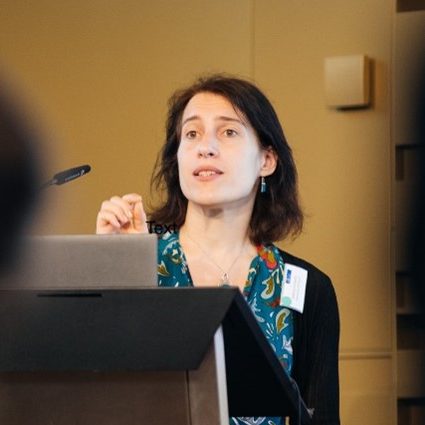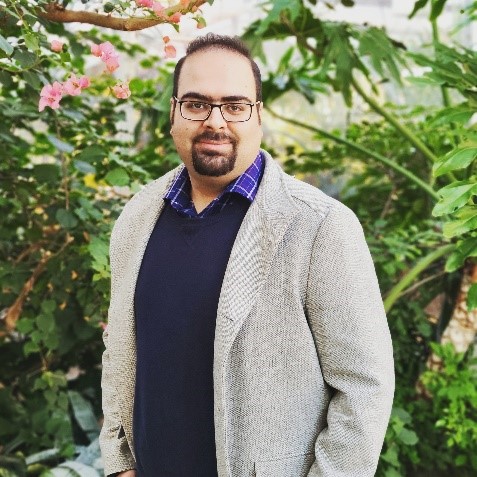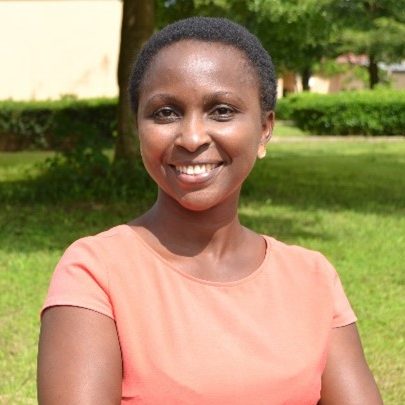Plantae Presents: Artificial Intelligence and Machine Learning in Plant Science
Plantae Presents: Artificial Intelligence and Machine Learning in Plant Science
Featuring Sabina Leonelli, Aalt-Jan van Dijk, Alexander White, and Mohsen Yoosefzadeh
When: Friday, January 26, 2024, at
7:00 AM PST | 10:00 AM EST | 3:00 PM GMT | 11:00 PM Beijing
About this Webinar
Plant scientists generate large amounts of data in order to answer complex biological questions. To cope with such a wealth of data, researchers can resort to a variety of analytical tools, making use of Artificial Intelligence (AI). AI and plant science need extensive collaboration, yet limited comprehension hampers its application in plant science. In this webinar, a panel discussion with AI experts from various backgrounds and with different interests will shed some light on the potential, challenges and limitations of AI, and more specifically of machine learning (ML) and deep learning (DL) driven analyses, to guide plant science.
This webinar may encourage plant scientists to explore AI and ML tools in their research. Hosted by the 2024 Plantae Fellows.
SPEAKERS
 Sabina Leonelli
Sabina Leonelli
Sabina Leonelli is Professor of Philosophy and History of Science at the University of Exeter, Director of the Centre for the Study of the Life Sciences (Egenis), lead of the “Data Governance, Ethics and Openness” strand of the Exeter Institute for Data Science and Artificial Intelligence, and Principal Investigator for the project “A Philosophy of Open Science for Diverse Research Environments” (www.opensciencestudies.eu). She researches conditions for and implications of data modeling, governance, and AI-powered analysis across the biological, environmental, and health sciences, with a particular interest in plant and crop science.
 Aalt-Jan Van Dijk
Aalt-Jan Van Dijk
Dr. A.D.J. van Dijk performed his PhD in computational structural biology at Utrecht University (2002-2006). He then moved to plant bioinformatics, joining Wageningen University & Research, where he is currently associate professor in the Bioinformatics group. March 2024 he will start as professor “Data Analysis in the Life Sciences” at the Swammerdam Institute for Life Sciences (University of Amsterdam). His research involves development and application of machine learning approaches for the analysis of omics data, aimed at studying plant protein function, interaction, and networks. Recent examples include protein-structure based machine learning (e.g., to predict enzymatic activity) and machine learning for the prediction of meiotic recombination in plants.
 Alex White
Alex White
Alex White is a biologist and Biodiversity Research Data Scientist at the Smithsonian Institution, where he leads the Smithsonian Data Science Lab. Dr. White’s research areas include statistical modeling in biogeography, quantitative ecology, and community phylogenetics. His work combines traditional methods in ecology and evolution with modern advances in statistics and computation, particularly those in machine learning and data science. With colleagues across the Smithsonian, he leads projects that leverage digitized museum collections and field-based methods to study ecology and evolution across the tree of life.
 Mohsen Yoosefzadeh Najafabadi
Mohsen Yoosefzadeh Najafabadi
Mohsen Yoosefzadeh Najafabadi is a research associate and special graduate faculty specializing in plant breeding and computational biology. Over the past 7 years, he has focused his research on breeding, genomics/phenomics-assisted breeding, high throughput phenotyping, big data analysis, and omics-related disciplines. He has optimized several machine and deep learning algorithms that are proficient at predicting soybean yield in the early growing stage using hyperspectral reflectance and some physiological yield-related traits. Specifically, Mohsen introduced the hyperspectral wide association study (HypWAS) approach, which demonstrated a hierarchical data integration strategy to understand the impact of hyperspectral reflectance bands in predicting soybean seed yield and its related traits. His areas of interest are machine learning assisted genomics and phenomics, data integration strategy.
MODERATORS
 Thomas Depaepe
Thomas Depaepe
Thomas Depaepe is a postdoctoral researcher at the Laboratory of Functional Plant Biology at Ghent University in Belgium. He obtained his PhD in functional biology at Ghent University. His particular interest in research is to unravel how plants integrate environmental signals to coordinate their growth, physiology, and ultimate survival, with a specific interest in the regulation of abiotic stresses by the plant hormone ethylene. He studies physiological responses from the cellular level, to tissues, organs, and at the whole-plant level, using a multidisciplinary approach with genetic, molecular, and in silico approaches coupled to advanced bio-imaging. X (formerly Twitter): @thdpaepe
 Kumanan N Govaichelvan
Kumanan N Govaichelvan
Kumanan is pursuing his PhD at University Malaya, Malaysia. He studies the potential of omics data in predicting gene association with abiotic and biotic stress-resistant traits using machine learning. He aims to outline a framework for the implementation of machine learning algorithms for biological problems and make them more reliable and interpretable. X (formerly Twitter): @NGKumanan
 Idowu Arinola Obisesan
Idowu Arinola Obisesan
Idowu Arinola Obisesan obtained a PhD in botany, with specialization in plant physiology. She lectures at Bowen University Iwo in Nigeria. Her research focuses on the effects of abiotic and biotic stresses on legumes, with a side interest in medicinal plant research. She is the creator of The Plant Therapist YouTube channel, which features content on scientifically proven medicinal plant therapy. X (formerly Twitter): @IdowuAobisesan



